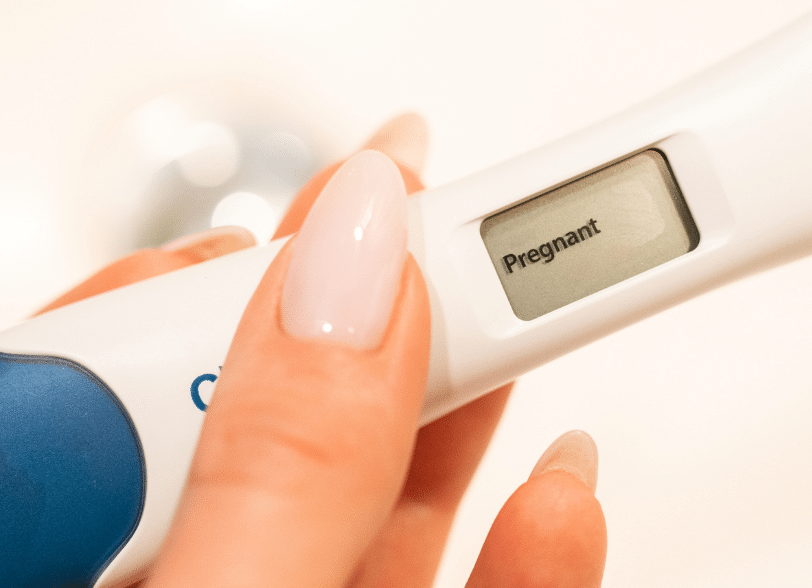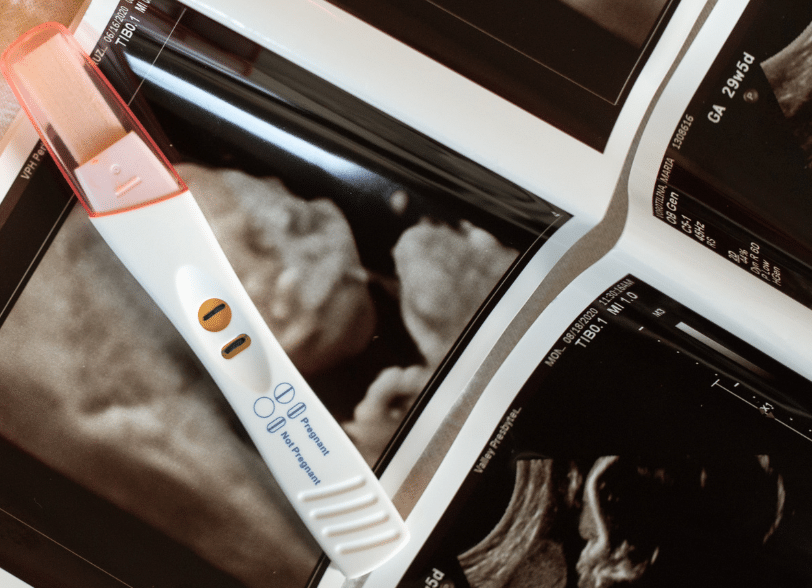
What Causes FASD?
Fetal alcohol spectrum disorders, or FASD, is a disability with a wide range of lifelong effects that can occur when alcohol is consumed during pregnancy. Research shows that even small amounts of alcohol can negatively impact a developing baby’s brain and body.
The fact is the safest amount of alcohol use during pregnancy is none.

1 in 7 Pregnancies Is Exposed to Alcohol
It is estimated that at least 1 in 7 in the US are exposed to alcohol. Alcohol is a teratogen, which means it can cause birth defects. Drinking during pregnancy can affect how the fetus grows and develops. It can harm different organs, especially the brain.
The brain develops throughout the entire pregnancy, so drinking alcohol at any time can cause brain injury. This can lead to the fetus having a smaller head and brain, called microcephaly, and can result in mild to severe disabilities. The safest choice is not to drink any alcohol during pregnancy.

The Effects of Prenatal Alcohol Exposure
When alcohol is consumed during pregnancy, the developing baby then has prenatal alcohol exposure. There are many factors that can lead to unintentional prenatal alcohol exposure.
When alcohol crosses through the placenta, it affects how a fetus is developing.1 It can be especially harmful to the fetus’s brain, which is developing throughout the entire pregnancy.2
Someone with prenatal alcohol exposure may have trouble with things like:
- Attention
- Behavior
- Learning
- Language
- Memory3
They may also experience:
- Heart problems4
- Increased risk of infections5
- Difficulty with movement6
- Other health issues
The Safest Choice is None.
Any amount of alcohol, even if it’s just one glass of wine, passes from the pregnant person to the fetus7. All major health groups state that there is no known safe amount of alcohol during pregnancy, including the Centers for Disease Control (CDC)8, the American Academy of Pediatrics (AAP)9, the American College of Obstetricians and Gynecologists (ACOG)10 and the U.S. Surgeon General11.
Any type of alcohol can cause harm to a developing fetus. It makes no difference if the alcohol is wine, beer or hard liquor12.
There is no safe time during pregnancy when it is safe to drink alcohol. Drinking during any of the three trimesters can affect the fetus.
View sources
1 Burd L, Blair J, Dropps K. Prenatal alcohol exposure, blood alcohol concentrations and alcohol elimination rates for the mother, fetus and newborn. Journal of Perinatology. 2012;32:652-659.
2 Hendrickson et al. Cortical gyrification is abnormal in children with prenatal alcohol exposure. NeuroImage: Clinical. 2017;15 391-400.
3 Flak AL, Su S, Bertrand J, Denny CH, Kesmodel US, Cogswell ME. The association of mild, moderate, and binge prenatal alcohol exposure and child neuropsychological outcomes: A Meta-analysis. Alcohol Clin Exp Res. 2014;38(1):214-26.
4 Westrup S. Foetal Alcohol Spectrum Disorders: as prevalent as autism?. Educational Psychology in Practice. 2013;29(3): 309-325.
5 Noor S, Milligan ED. Lifelong Impacts of Moderate Prenatal Alcohol Exposure on Neuroimmune Function. Frontiers in Immunology. 2018.
6 Taggart TC, Simmons RW, Thomas JD, Riley EP. Children with Heavy Prenatal Alcohol Exposure Exhibit Atypical Gait Characteristics. Alcoholism: Clinical &Experimental Research. 2017;41(9):1648-1655.
7 Burd L, Blair J, Dropps K. Prenatal alcohol exposure, blood alcohol concentrations and alcohol elimination rates for the mother, fetus and newborn. Journal of Perinatology. 2012;32:652-659.
8 Centers for Disease Control and Prevention. Fetal Alcohol Spectrum Disorders (FASDs). https://www.cdc.gov/ncbddd/fasd/alcohol-use.html
9 American Academy of Pediatrics. AAP Says No Amount of Alcohol Should Be Considered Safe During Pregnancy. https://www.aap.org/en-us/about-the-aap/aap-press-room/Pages/AAP-Says-No-Amount-of-Alcohol-Should-be-Considered-Safe-During-Pregnancy.aspx
10 American College of Obstetricians and Gynecologists (ACOG). Fetal alcohol spectrum disorders (FASD) prevention program. https://www.acog.org/About-ACOG/ACOG-Departments/Tobacco–Alcohol–and-Substance-Abuse/Fetal-Alcohol-Spectrum-Disorders-Prevention-Program
11 Centers for Disease Control and Prevention. Notice to Readers: Surgeon General’s Advisory on Alcohol Use in Pregnancy. https://www.cdc.gov/mmwr/preview/mmwrhtml/mm5409a6.htm
12 Centers for Disease Control and Prevention. Alcohol Use in Pregnancy. https://www.cdc.gov/ncbddd/fasd/alcohol-use.html
What can we help
you with today?
I want:




